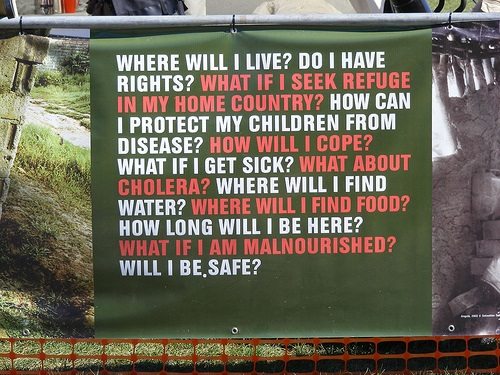
July 7, 2014; The Guardian
A report issued by Médecins Sans Frontières/Doctors without Borders (MSF) entitled “Where is Everyone?” states that, while international organizations have seen increases in their fundraising efforts, their direct impact in the developing world has decreased significantly. The report highlighted a number of issues and made assertions that ranged from “Humanitarian responses are slow and cumbersome and lack impact” to “UN agencies and INGOs are increasingly absent from field locations” and “when assistance is most needed, international staff of humanitarian agencies are rapidly evacuated or go into hibernation.”
The report is based on interviews with 116 humanitarian workers and provides case studies that look into analyses of the international responses to conflicts in the Democratic Republic of the Congo, South Sudan, and Syria. According to the report, the response to the crisis in the Congo “constrained itself to a withdrawn role, focusing on its day-to-day work in projects, and did not try and influence the larger humanitarian community.” One Congo staff leader, discussing the creation of refugee sites, said, “These spontaneous sites attract insecurity. It’s a bad choice, either you are outside the camp and have to fend for yourself or in the camp and have to deal with insecurity.”
Sign up for our free newsletters
Subscribe to NPQ's newsletters to have our top stories delivered directly to your inbox.
By signing up, you agree to our privacy policy and terms of use, and to receive messages from NPQ and our partners.
While the report spends considerable time on international NGOs, the report also names a number of issues with the United Nations. MSF’s international president, Joanne Liu, stated, “The current UN system inhibits good decision-making, in particular in displacement crises where a number of UN agencies have a responsibility to respond.”
International groups are already responding, with a representative from the United Nations High Commissioner for Refugees (UNHCR) addressing a Guardian article about the report by asserting, “Anyone who has been in a full-blown humanitarian emergency will know that they can indeed be chaotic and dangerous, especially in the initial phases. It is, nonetheless, vital that people in acute need get the help they need. UNHCR constantly looks at ways to improve the way we work, and we are viewing MSF’s criticisms in that light.”
With improving “the way we work” as an obvious goal of the report, Sandrine Tiller, co-author of the report, believes that there are several key challenges that face international relief organizations. The following are several examples:
- Choosing Easily Accessible Projects – Tiller believes that there is “a bias towards what we call easier projects: accessible areas, places you can get to by road, camp populations with registered refugees, anything near the capital, and in conflict zones, anything that’s government controlled.”
- Flawed Subcontracting Processes – Tiller outlined that the current subcontracting process takes resources from the field and moves them to the central offices. According to the article, “It’s just a chain of subcontracts. It goes from the donors to the UN agencies to an implementing NGO to another local NGO, and at the end, there’s no one in the field. There’s a dearth of attention to those difficult areas.”
- Moving Offices Far Away From The Field – While subcontracting has moved away from the field, so have the field offices. “If you go to any bar in Juba or in Kinshasa and talk to the real humanitarians in the field, this is what they’re complaining about,” Tiller says. “They would say their headquarters have become too bloated, it’s become a massive bureaucracy, that they constantly have to feed the headquarters beast with information. They feel they don’t have enough time to talk to refugees, they have to spend more of their time doing reports. Human contact is kind of lost.”
International NGOs have started to heed the call for better connections to the field. In an online discussion following the report that was hosted by the Guardian, Michael von Bertele, humanitarian director at Save the Children International (SCI), said when asked about reducing bureaucracy that SCI has “reorganized so that it is able to delegate decision making to its country offices which are much more in touch with the actual needs of the people they support…The whole organization is thus realigning to recognize its responsibility to respond across the full spectrum of need from emergency to development.”—John Brothers













